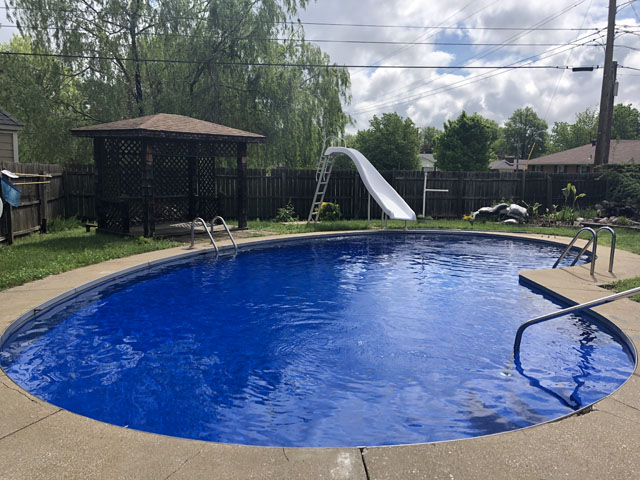
Property Taxes Just Went Up? We’ve Got You Covered!
It’s reassessment season for most folks in our area. Homeowners

Anybody wanna go for a swim?
As I write this blog post, it’s mid-December and currently cold & raining outside my office. Maybe I’m dreaming of summer already, I don’t know. Regardless, I thought I’d write a quick post about swimming pools and FHA appraisals.
So let’s ‘jump’ right in! (Sorry. That was really bad, wasn’t it?!)
If you’re refinancing your mortgage or purchasing a new home, and the property has an inground pool, the appraiser will need to inspect the pool to make sure it meets FHA’s criteria for pools.
Our regulations state that appraisers will need to report any defects (that are readily observable) in a pool that is uncovered if those defects make the pool inoperable or unusable. The appraiser won’t make someone clean the pool unless the appraiser suspects contamination, but the pool does have to be fully operational to provide full contributory value. So that green pool water you’ve been struggling with? It’s probably going to be ok, as long as the pool is working.
If the pool has unstable sides or other structural issues, FHA will require the appraiser to make the appraisal subject-to pool repair or subject-to permanently filling in the pool.
But what if I go out tomorrow (remember it’s mid-December as I write) and the pool has been winterized? Per FHA, if an appraiser can’t determine if the pool is in working order, then “the appraiser must complete the appraisal with the extraordinary assumption that the pool and its equipment can be restored to full operating condition at normal costs.” That’s just a fancy way of saying that the appraiser is going to assume all is well.
Regardless of the season, if the appraiser can tell that the pool is unsafe, or that any of the equipment isn’t working properly, the appraisal will be made subject-to repair or replacement in order to meet FHA guidelines.
[bctt tweet=”Regardless of the season, if the appraiser can tell that the pool is unsafe, or that any of the equipment isn’t working properly, the appraisal will be made subject-to repair or replacement in order to meet FHA guidelines.” username=”RiverfrontApp”]
Now everything you just read has to do with inground pools. But what about above ground pools? In a typical real estate transaction, an above ground swimming pool is considered personal property, as they usually are not affixed to the real property. Most lenders and market participants consider an above ground pool personal property as they are generally easy to remove. Therefore, the appraiser doesn’t have to complete the same level of inspection and analysis on an above ground pool as they do for an inground pool. The entire property, however, still needs to be safe and secure, so other issues may be present with the pool, regardless of how it is classified.
The pool in the photo above is a good example of one that required a little help. I did an FHA appraisal on this property and conditioned the appraisal on a few things with regard to the pool. The pool needed to be filled with water in order to (1) allow all the equipment to be turned on and inspected to make sure it was all working well; and (2) to ensure the safety of anyone around the pool. The pool above is actually less safe than one filled with water because you not only have the danger of falling further before hitting the water, you could also hit the side or the bottom (where no water was), or end up drowning in the low end of the pool.
There are several things to consider when financing a home with a pool through FHA. This blog post covered the major issues, but it’s always best to consult an appraiser in your area to see if there are any other specific guidelines you’ll need to follow (i.e. fencing, etc) before getting in too deep (ok. I promise that’s the last pool pun!).
Helping homeowners navigate the appraisal process,
Ryan Bays, SRA, AI-RRS

It’s reassessment season for most folks in our area. Homeowners

I feel like we all need a laugh. How about

So this may be a slight break from the norm,
Riverfront Appraisals has been providing comprehensive valuations of residential properties to Western Kentucky and Southwestern Indiana since 2008.